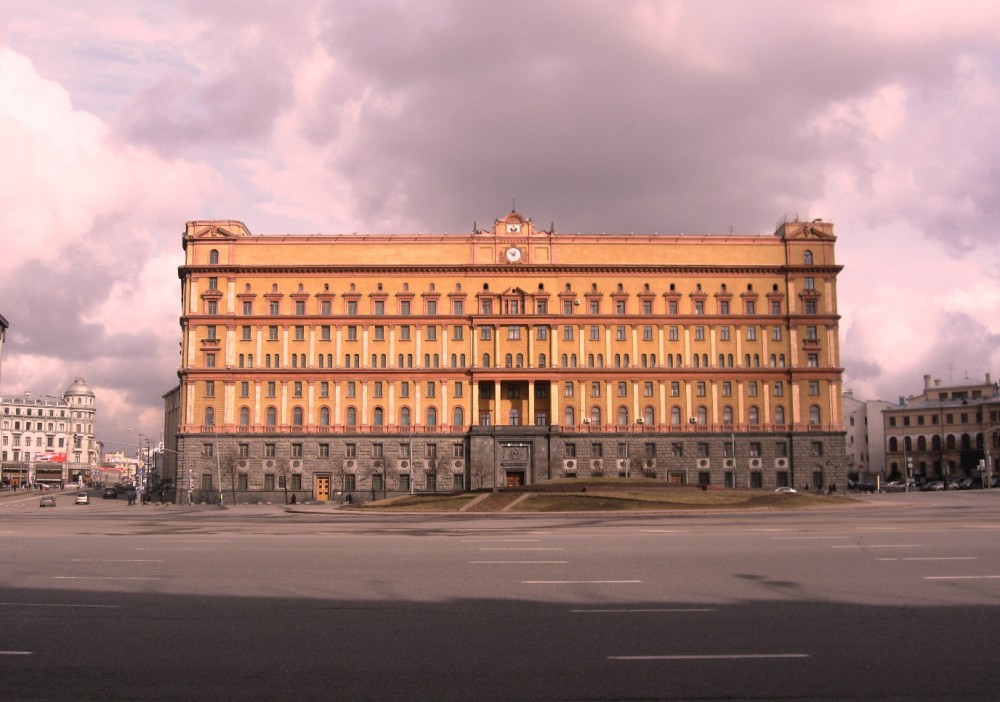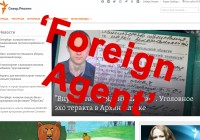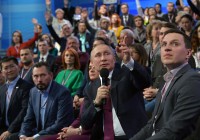
Russia’s new ‘Foreign Agent’ law, explained
ADVERTISEMENT
Russia has passed legislation that will allow individual journalists and bloggers to be labeled “foreign agents,” a move that critics say will tighten curbs on the media and free speech.
At least nine news organizations funded by the U.S. government have been designated “foreign agents” under the original version of the law since it was signed by President Vladimir Putin in 2017 as a retaliation to America’s decision to restrict Kremlin-run media.
Here’s a look at what the new law stipulates — and what it means for journalists working in Russia:
Who can be labeled a “foreign agent”?
— The law applies to any individual who distributes information on the internet and receives money from foreign sources.
— Also, any individual who distributes foreign media can be labeled a foreign agent.
— The State Duma has confirmed that both foreigners and Russians may be labeled “foreign agents” under the new law.
What happens to so-called “foreign agents”?
— All material published by an individual who receives money from abroad — including social media posts — will be labeled as having been distributed by a foreign agent. This label will be added by the individual or by the website on which his or her content appears, and not by the government.
ADVERTISEMENT
— “Foreign agents” will be required to create legal entities in Russia with which the Justice Ministry can interact.
What are experts saying?
— «It may have a considerable chilling effect on journalists, as well as on bloggers, experts, or other individuals publishing information, particularly online,» Harlem Desir, media freedom chief for the Organization for Security and Cooperation in Europe (OSCE), has said.
— “First, the law conflicts with the Russian constitution and goes beyond the rights. It fits the image of totalitarian systems of law, not democratic ones. Moreover, in terms of juridical technique, the law is doomed to selective application. It’s impossible to implement it literally, to monitor all violations is not technically possible. It was made to selectively punish those who someone wants to punish somehow,” Andrei Kolesnikov, a senior associate at the Carnegie Center Moscow think tank, told The Moscow Times.
“It’s just a bad idea to prohibit all citizens from receiving money from abroad, wherever it is. This blocks the possibility of developing international relations in all sectors, but primarily in science and culture. It’s unrealistic to expect that all people who have ever had a connection in another country will cease to somehow represent themselves in the public space, social networks and in newspapers,” said Ella Paneyakh, an associate professor of sociology at the Higher School of Economics branch in St. Petersburg.
— “Everyone is sure that it will be directed against some of the most active political communities, such as [Alexei Navalny’s Anti-Corruption Foundation]. But in reality, this is absolutely not guaranteed. It will be used wherever there are malicious people who want to use it,” Paneyakh told The Moscow Times.
— “The main purpose of the legislation and media rhetoric … is to set the tone of the public discourse — or what passes for such in Russia. The framers of these laws are not so much attempting to commit mass repression as to create a mindset among the people — backed up by targeted crackdowns. Once this mindset is in place, no marches, special procedures or even public speeches are necessary to carry out a whole range of „emergency measures“,” Maxim Trudolyubov, the editor-at-large of the Vedomosti business daily, wrote.
This article first appeared in The Moscow Times and is republished in a sharing partnership with the Barents Observer.






